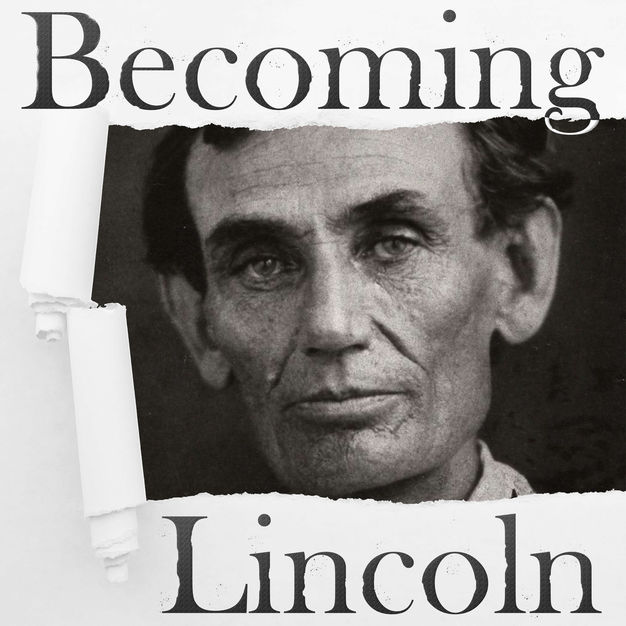
Becoming Lincoln
Brian Lyman
A podcast on the life of Abraham Lincoln, from his ancestors to his afterlife.
- 35 minutes 23 secondsThe Common Right of Humanity
Abraham Lincoln delivered a powerful closing argument at the final Lincoln-Douglas Debate. Republicans triumphed in contests around the country. But then the Illinois Senate race got an October surprise.
Blumenthal, Sidney: All The Powers of Earth. Simon and Schuster, 2019.
Burlingame, Michael, Abraham Lincoln: A Life. (Vol. 1). The John Hopkins University Press, 1995.
Collected Works of Abraham Lincoln. 1953 Edition hosted by the University of Michigan.
"Crittenden to Douglas," The Ottawa Free Trader, Oct. 30, 1858
Davis, Rodney and Wilson, Douglas, ed. Herndon's Informants: Letters, Interviews, and Statements about Abraham Lincoln. University of Chicago Press, 1998.
Davis, Rodney and Wilson, Douglas, ed. Herndon on Lincoln: Letters. Knox College Lincoln Studies Center, 2016.
Davis, Rodney and Wilson, Douglas, ed., The Lincoln-Douglas Debates. Knox-College, Lincoln Studies Center, 2008.
Donald, David Herbert, Lincoln: A Biography. Simon and Schuster, 1995.
Foner, Eric, The Fiery Trial: Abraham Lincoln and American Slavery. W.W. Norton and Company, 2011.
"Great Republican Triumph," Chicago Tribune, Oct. 14, 1858.
Guelzo, Alan, Lincoln and Douglas: The Debates That Defined America. Simon and Schuster, 2008.
Klotter, James, Henry Clay: The Man Who Would Be President. Oxford University Press, 2018.
"Political Meetings at Taylorville," Illinois State Journal, Sept. 13, 1858.
Peck, Graham, Making an Anti-Slavery Nation: Lincoln, Douglas and the Battle Over Freedom. University of Illinois Press, 2020.26 June 2024, 7:00 am - 29 minutes 8 secondsThe Moral Lights
As Stephen Douglas staggered under alcohol, illness and the repetition of old ideas, Abraham Lincoln found the clear distinction between them in their debates -- and hammered his opponent pitilessly over his indifference to slavery.
Sources used:
Blumenthal, Sidney: All The Powers of Earth. Simon and Schuster, 2019.
Burlingame, Michael, Abraham Lincoln: A Life. (Vol. 1). The John Hopkins University Press, 1995.
Collected Works of Abraham Lincoln. 1953 Edition hosted by the University of Michigan.
Davis, Rodney and Wilson, Douglas, ed. Herndon's Informants: Letters, Interviews, and Statements about Abraham Lincoln. University of Chicago Press, 1998.
Davis, Rodney and Wilson, Douglas, ed. Herndon on Lincoln: Letters. Knox College Lincoln Studies Center, 2016.
Davis, Rodney and Wilson, Douglas, ed., The Lincoln-Douglas Debates. Knox-College Lincoln Studies Center, 2008.
Donald, David Herbert, Lincoln: A Biography. Simon and Schuster, 1995.
Foner, Eric, The Fiery Trial: Abraham Lincoln and American Slavery. W.W. Norton and Company, 2011.
Guelzo, Alan, Lincoln and Douglas: The Debates That Defined America. Simon and Schuster, 2008.19 June 2024, 7:00 am - 32 minutes 17 secondsAn Assumption of Superiority
In an attempt to respond to Stephen Douglas' relentless race-baiting, Abraham Lincoln reaches the moral nadir of his political life. But from the depths of this disaster he starts finding an argument that he will wield with far more effectiveness in the later debates.
Sources used:
Blumenthal, Sidney: All The Powers of Earth. Simon and Schuster, 2019.
Burlingame, Michael, Abraham Lincoln: A Life. (Vol. 1). The John Hopkins University Press, 1995.
Collected Works of Abraham Lincoln. 1953 Edition hosted by the University of Michigan.
Davis, Rodney and Wilson, Douglas, ed. Herndon's Informants: Letters, Interviews, and Statements about Abraham Lincoln. University of Chicago Press, 1998.
Davis, Rodney and Wilson, Douglas, ed. Herndon on Lincoln: Letters. Knox College Lincoln Studies Center, 2016.
Davis, Rodney and Wilson, Douglas, ed., The Lincoln-Douglas Debates. Knox-CollegeLincoln Studies Center, 2008.
Donald, David Herbert, Lincoln: A Biography. Simon and Schuster, 1995.
Foner, Eric, The Fiery Trial: Abraham Lincoln and American Slavery. W.W. Norton and Company, 2011.
Guelzo, Alan, Lincoln and Douglas: The Debates That Defined America. Simon and Schuster, 2008.12 June 2024, 7:00 am - 33 minutes 9 secondsFire in Flight
The Lincoln-Douglas debates had some eloquence, lots of repetition and much in the way of grubby politicking. Stephen Douglas hit hard at Abraham Lincoln in the first contest in Ottawa, and Lincoln hit back at the second in Freeport.
Sources used:
Blumenthal, Sidney: All The Powers of Earth. Simon and Schuster, 2019.
Burlingame, Michael, Abraham Lincoln: A Life. (Vol. 1). The John Hopkins University Press, 1995.
Collected Works of Abraham Lincoln. 1953 Edition hosted by the University of Michigan.
Davis, Rodney and Wilson, Douglas, ed. Herndon's Informants: Letters, Interviews, and Statements about Abraham Lincoln. University of Chicago Press, 1998.
Davis, Rodney and Wilson, Douglas, ed. Herndon on Lincoln: Letters. Knox College Lincoln Studies Center, 2016.
Davis, Rodney and Wilson, Douglas, ed., The Lincoln-Douglas Debates. Knox-CollegeLincoln Studies Center, 2008.
Donald, David Herbert, Lincoln: A Biography. Simon and Schuster, 1995.
Finkleman, Paul, Dred Scott v. Sandford: A Brief History with Documents. Bedford Books, 1997.
Foner, Eric, The Fiery Trial: Abraham Lincoln and American Slavery. W.W. Norton and Company, 2011.
Guelzo, Alan, Lincoln and Douglas: The Debates That Defined America. Simon and Schuster, 2008.5 June 2024, 7:00 am - 34 minutes 38 secondsA House Divided
Abraham Lincoln's House Divided speech drew clear lines between Democrats and Republicans as the 1858 U.S. Senate campaign in Illinois got underway.
Sources used:
Blumenthal, Sidney: All The Powers of Earth. Simon and Schuster, 2019.
Burlingame, Michael, Abraham Lincoln: A Life. (Vol. 1). The John Hopkins University Press, 1995.
Collected Works of Abraham Lincoln. 1953 Edition hosted by the University of Michigan.
Davis, Rodney and Wilson, Douglas, ed. Herndon's Informants: Letters, Interviews, and Statements about Abraham Lincoln. University of Chicago Press, 1998.
Davis, Rodney and Wilson, Douglas, ed. Herndon on Lincoln: Letters. Knox College Lincoln Studies Center, 2016.
Donald, David Herbert, Lincoln: A Biography. Simon and Schuster, 1995.
Finkleman, Paul, Dred Scott v. Sandford: A Brief History with Documents. Bedford Books, 1997.
Foner, Eric, The Fiery Trial: Abraham Lincoln and American Slavery. W.W. Norton and Company, 2011.
Guelzo, Alan, Lincoln and Douglas: The Debates That Defined America. Simon and Schuster, 2008.
29 May 2024, 7:00 am - 28 minutes 10 secondsGeneral Jackson Is Dead
A rift between Stephen Douglas and President James Buchanan appeared to give Abraham Lincoln a break in his run for U.S. Senate. But Lincoln began scrambling to pull Republicans behind him after Douglas started flirting with a bipartisan anti-Buchanan coalition.
Sources used:
"A Bad Sign." Illinois State Journal, April 14, 1858, p. 2
Blumenthal, Sidney: All The Powers of Earth. Simon and Schuster, 2019.
Burlingame, Michael, Abraham Lincoln: A Life. (Vol. 1). The John Hopkins University Press, 1995.
Collected Works of Abraham Lincoln. 1953 Edition hosted by the University of Michigan.
Davis, Rodney and Wilson, Douglas, ed. Herndon's Informants: Letters, Interviews, and Statements about Abraham Lincoln. University of Chicago Press, 1998.
Davis, Rodney and Wilson, Douglas, ed. Herndon on Lincoln: Letters. Knox College Lincoln Studies Center, 2016.
Donald, David Herbert, Lincoln: A Biography. Simon and Schuster, 1995.
Guelzo, Alan, Lincoln and Douglas: The Debates That Defined America. Simon and Schuster, 2008.
Kluger, Richard, The Paper: The Life and Death of the New York Herald Tribune. Alfred A. Knopf, 1986.
Morris, Roy Jr. The Long Pursuit: Abraham Lincoln's 30-Year Struggle With Stephen Douglas for the Heart and Soul of America. Smithsonian Books, 2008.
Quitt, Martin H. Stephen A. Douglas and Antebellum Democracy. Cambridge University Press, 2012.Wilentz, Sean, The Rise of American Democracy: Jefferson to Lincoln. W.W. Norton and Company, 2005.
22 May 2024, 7:00 am - 34 minutes 9 secondsA Sublimity of Impudence
The Scott family's decade-long fight to claim the freedom owed to them under the law ran into state and federal judges determined to close the courts -- and broader citizenship -- to Black Americans. For white Americans like Abraham Lincoln, the Dred Scott ruling forced them to consider how denial of rights to one group of people could leave everyone else's rights open to question.
Sources used:
Blumenthal, Sidney: All The Powers of Earth. Simon and Schuster, 2019.
Burlingame, Michael, Abraham Lincoln: A Life. (Vol. 1). The John Hopkins University Press, 1995.
Collected Works of Abraham Lincoln. 1953 Edition hosted by the University of Michigan.
Davis, Rodney and Wilson, Douglas, ed. Herndon's Informants: Letters, Interviews, and Statements about Abraham Lincoln. University of Chicago Press, 1998.
Davis, Rodney and Wilson, Douglas, ed. Herndon on Lincoln: Letters. Knox College Lincoln Studies Center, 2016.
Donald, David Herbert, Lincoln: A Biography. Simon and Schuster, 1995.
Donald, David Herbert, Charles Sumner and the Coming of the Civil War. Alfred A. Knopf, 1960.
"Dred Scott." The New York Times, Sept. 21, 1858, p. 4.
Finkelman, Paul, Dred Scott v. Sandford: A Brief History with Documents. Bedford Books; 1997.
Foner, Eric, The Fiery Trial: Abraham Lincoln and American Slavery. W.W. Norton and Company, 2011.
Quitt, Martin H. Stephen A. Douglas and Antebellum Democracy. Cambridge University Press, 2012.
Ripley, C. Peter, ed. Witness For Freedom: African American Voices on Race, Slavery and Emancipation. The University of North Carolina Press, 1993.Wilentz, Sean, The Rise of American Democracy: Jefferson to Lincoln. W.W. Norton and Company, 2005.
15 May 2024, 7:00 am - 36 minutes 21 secondsThe Darkening Land
The 1856 presidential election took place amid a backdrop of violence in Kansas and Congress. Abraham Lincoln threw himself into the fight for the Republican Party and free territories.
Sources used:
"1856 Democratic Party Platform," hosted on the University of California Santa Barbara's American Presidency Project.
Blumenthal, Sidney: All The Powers of Earth. Simon and Schuster, 2019.
Burlingame, Michael, Abraham Lincoln: A Life. (Vol. 1). The John Hopkins University Press, 1995.
Collected Works of Abraham Lincoln. 1953 Edition hosted by the University of Michigan.
Davis, Rodney and Wilson, Douglas, ed. Herndon's Informants: Letters, Interviews, and Statements about Abraham Lincoln. University of Chicago Press, 1998.
Davis, Rodney and Wilson, Douglas, ed. Herndon on Lincoln: Letters. Knox College Lincoln Studies Center, 2016.
Donald, David Herbert, Lincoln: A Biography. Simon and Schuster, 1995.
Donald, David Herbert, Charles Sumner and the Coming of the Civil War. Alfred A. Knopf, 1960.
Etcheson, Nicole, "A Living, Creeping Lie: Abraham Lincoln on Popular Sovereignty." Journal of the Abraham Lincoln Association; Vol. 29, Issue 2, Summer 2008.
Foner, Eric, The Fiery Trial: Abraham Lincoln and American Slavery. W.W. Norton and Company, 2011.
Hernon, William with Weik, Jesse, Herndon's Lincoln, ed. Davis, Rodney and Wilson, Douglas. Knox College Lincoln Studies Center, 2006.
Holt, Michael, The Rise and Fall of the American Whig Party: Jacksonian Politics and the Onset of the Civil War. Oxford University Press; 1999.
Inskeep, Steve, Imperfect Union: How Jesse and John Fremont Mapped te West, Invented Celebrity, and Helped Cause The Civil War. Penguin Press; 2020.
Leech, Liz, "Kansas Territorial Elections 1855: Let 'Em Vote or They'll Tear the House Down," on JeffersonJayHawkers.com.
"Republican Party Platform of 1856," hosted on the University of California Santa Barbara's American Presidency Project.
Sumner, Charles, "The Crime Against Kansas," via the U.S. Senate website.Wilentz, Sean, The Rise of American Democracy: Jefferson to Lincoln. W.W. Norton and Company, 2005.
8 May 2024, 7:00 am - 34 minutes 57 secondsRadicals and All
As the Whig Party withered away in 1855, Abraham Lincoln found himself pulled toward the new Republican Party -- an organization that not only stood foursquare against slavery's expansion, but brought an economic vision that reflected northern attitudes and explicitly rejected the Southern way of life.
Sources used:
Blumenthal, Sidney: All The Powers of Earth. Simon and Schuster, 2019.
Burlingame, Michael, Abraham Lincoln: A Life. (Vol. 1). The John Hopkins University Press, 1995.
Collected Works of Abraham Lincoln. 1953 Edition hosted by the University of Michigan.
Davis, Rodney and Wilson, Douglas, ed. Herndon on Lincoln: Letters. Knox College Lincoln Studies Center, 2016.
Donald, David Herbert, Lincoln: A Biography. Simon and Schuster, 1995.
Foner, Eric, Free Soil, Free Labor, Free Men: The Ideology of the Republican Party Before the Civil War. Oxford University Press, 1995.
Foner, Eric, The Fiery Trial: Abraham Lincoln and American Slavery. W.W. Norton and Company, 2011.
Holt, Michael, The Rise and Fall of the American Whig Party: Jacksonian Politics and the Onset of the Civil War. Oxford University Press; 1999.
Sumner, Charles, "Equality before the law, unconstitutionality of separate colored schools in Massachusetts : argument of Charles Sumner, Esq., before the Supreme Court of Massachusetts, in the case of Sarah C. Roberts vs. The City of Boston, December 4, 1849." hosted on the Library of Congress website.Wilentz, Sean, The Rise of American Democracy: Jefferson to Lincoln. W.W. Norton and Company, 2005.
1 May 2024, 6:00 am - 35 minutes 11 secondsThe Dove Shall Bring My Sorrow
Being an enslaved person in America in the 1850s meant the ever-present threat of violence and separation from loved ones. And throughout the decade, the white South became increasingly determined to spread it as far as they could.
Sources for this episode:
Berlin, Ira and Rowland, Leslie, ed. Families and Freedom: A Documetary History of African-American Kinship in the Civil War Era. The New Press; 1997.
Berlin, Ira, Generations of Captivity: A History of African-American Slaves. Belknap Press; 2003
Born in Slavery: Slave Narratives from the Federal Writers' Project, 1936 to 1938. Hosted by the Library of Congress.
Berry, Dana Ramey, Swing the Sickle for the Harvest Is Ripe: Gender and Slavery in Antebellum Georgia. University of Illinois Press; 2007
Collected Works of Abraham Lincoln. 1953 Edition hosted by the University of Michigan.
Genovese, Eugene, Roll Jordan Roll: The World the Slaves Made. Vintage Books; 1972.
Johnson, Walter. Soul By Soul: Life Inside The Antebellum Slave Market. Harvard University Press, 1999.
Mellon, James, ed. Bullwhip Days: The Slaves Remember. Grove Press; 1988
McCurry, Stephanie, Masters of Small Worlds: Yeoman Households, Gender Relations, ad the Political Culture of the Antebellum South Carolina Low Country. Oxford University Press; 1995.
McDonald, Roderick, "Independent Economic Production By Slaves on Antebellum Louisiana Sugar Plantations" in Cultivation and Culture, Labor and the Shaping of Slave Life in the Americas, eds. Ira Berlin and Philip D. Morgan. University Press of Virginia; 1993.
Rothman, Joshua D., The Ledger and The Chain: How Domestic Slave Traders Shaped America. Basic Books; 2021.
Waller, John C., Health and Wellness in 19th Century America. Greenwood; 2014.24 April 2024, 6:00 am - 33 minutes 58 secondsThe Cause
The Kansas-Nebraska Act threw American politics into chaos in 1854. The two-party duopoly that existed for the previous 20 years was swept away in the space of a few months. As Abraham Lincoln fought for the anti-Nebraska coalition in Illinois, he found himself with an unexpected political opportunity -- followed by the most difficult decision of his career to that point.
15 January 2020, 7:00 am - More Episodes? Get the App
Your feedback is valuable to us. Should you encounter any bugs, glitches, lack of functionality or other problems, please email us on [email protected] or join Moon.FM Telegram Group where you can talk directly to the dev team who are happy to answer any queries.
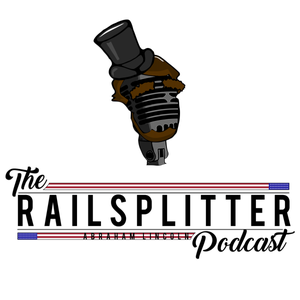 The Railsplitter: The Abraham Lincoln Podcast
The Railsplitter: The Abraham Lincoln Podcast
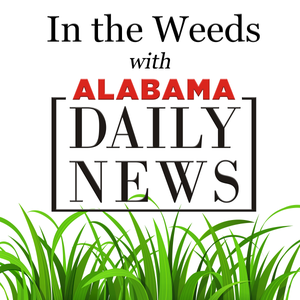 In the Weeds with Alabama Daily News
In the Weeds with Alabama Daily News
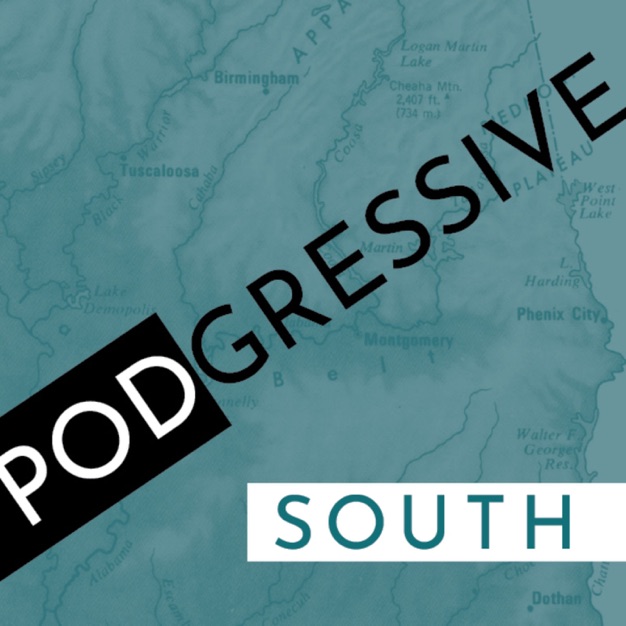 Podgressive South
Podgressive South
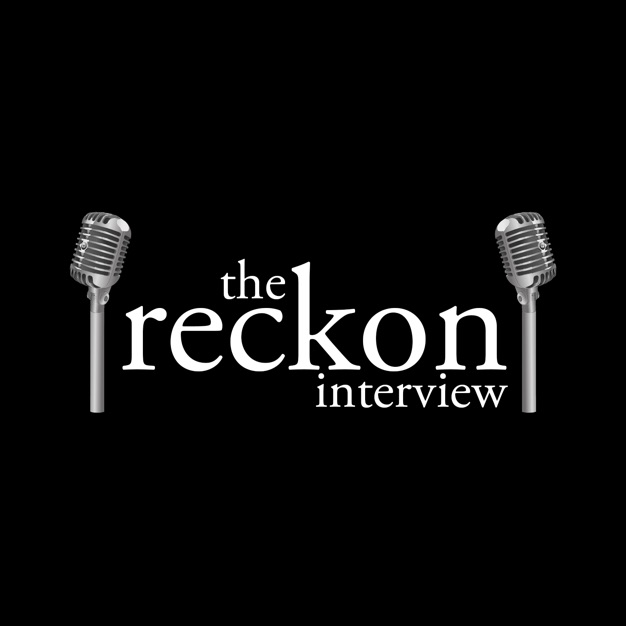 Reckon Interview
Reckon Interview